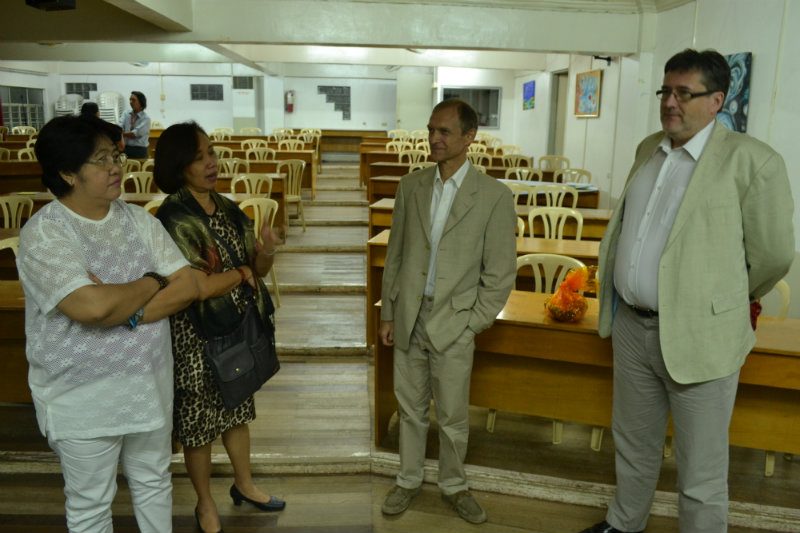SUMMARY
This is AI generated summarization, which may have errors. For context, always refer to the full article.

TACLOBAN, Philippines – For the first time since its inception, Cine Europa was brought to Leyte to reach residents of the worst affected areas of typhoon Yolanda in Tacloban organized by the European Union representation in the Philippines.
Cine Europa is a European film festival featuring 23 films focusing on family ties from 17 countries including Austria, Belgium, Bulgaria, Czech Republic, Denmark, France, Germany, Hungary, Italy, The Netherlands, Norway, Romania, Slovakia, Spain, Sweden, Switzerland, and the United Kingdom.
University of the Philippines faculty member Paolo Amascual said the European film festival did not promote differences in cultures, but a union of struggles.
“Cine Europa made the audience realize that though we have different ways of doing, expressing…and looking at [things], we all have similarities in our situations and that make us all united in a way,” said Amascual, who is also in charge of the UP Tacloban committee on culture and the arts.
Czech Republic Ambassador to the Philippines Jaroslav Olsa Jr launched the film festival at the UP Tacloban campus on October 21 with the screening of the Czech Republic’s Identity Card. The event was attended by UP faculty and students who were mostly from the communication arts department.

The audience identified with the film’s main characters who were young rebels of the communist regime installed by Soviet Russia’s invasion of the former Czechoslovakia in the 1970s.
All the world’s people have “typhoons” in life, said Amascual. While the characters in the film struggled with differing perspectives of the adults around them, Taclobanons, according to Amascual, were also strained by public perception that branded them as looters after the typhoon. With barely any food and supplies after the typhoon, Yolanda survivors resorted to looting grocery stores and supermarkets in Tacloban city.
“It is a big deal having the whole world’s magnifying lens on you as a people,” Amascual said as he shared about how they try to exemplify resilience to the whole world.

Marilou Morales, a senior communication arts student in UP, said the film resonated with her. She felt her own grief echoed by a character in the movie who loses a father.
“[That part of the movie reflected] the resilience of the Yolanda victims who stayed in ground zero. Families should stick together. Sacrifices are necessary,” Morales said, recounting the times when survivors tried to stay close with their loved ones despite the lack of food and shelter.
Morales shared her disappointment on how the government treated Yolanda survivors. According to Morales, relief aid was not given properly and fairly and that authorities were self-serving.
Communication Arts Professor Joycie Dorado Alegre said Identity Card could inspire freedom among the youth and promote their creativity in expressing their opinions.
Morales added she was inspired by the subtle but symbolic acts of protests portrayed by the youth in the film who listened to unconventional music and tore a page of their identity cards in protest.
Cine Europa 17 came as a breather to the usual typhoon recovery activities of the university, remarked Dr. Anita G. Cular, Dean of the UP Visayas Tacloban campus.
The Tacloban screening ended on October 26. Enthusiasts can catch the films in Zamboanga on November 4-9 and Cagayan de Oro on November 13-16. Admission is free but seats are limited. – Rappler.com
Elina Bestil is a Mover from the Visayas State University.
Add a comment
How does this make you feel?
There are no comments yet. Add your comment to start the conversation.